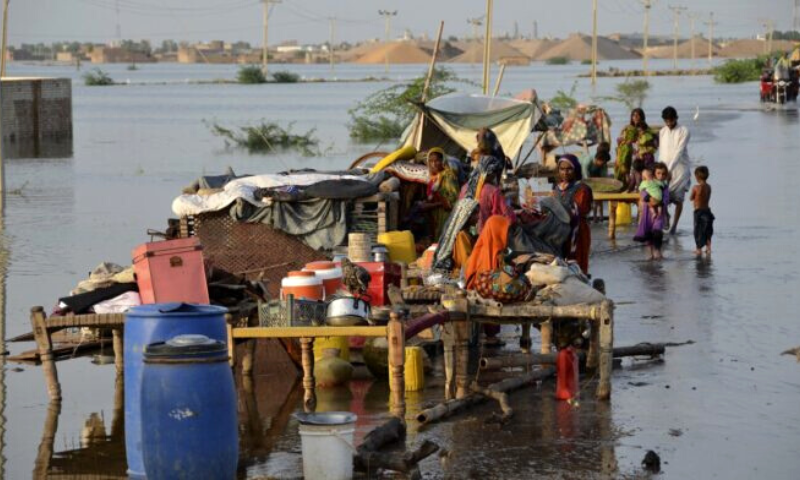ISLAMABAD: Climate change has no boundaries and Pakistan has seen its indiscriminate wrath. The country is at the whim of a volatile environment in which rising temperatures upset rainfall patterns and trap communities in a never-ending cycle of water scarcity and water-related disasters.
In its pursuit of resilience, Pakistan joins with international partners in order to take bold steps to safeguard its people, rebuild shattered lives, and establish a sustainable future.
‘Climate Resilient Pakistan
On January 9, 2023, the United Nations and the Government of Pakistan co-hosted the ‘Climate Resilient Pakistan conference in Geneva. The objective of the conference was to highlight the serious threat posed by climate change, particularly in the context of the horrible floods in 2022. Several countries and development agencies made contributions during the summit, totaling more than half of the $16 billion in rehabilitation funds requested by the Pakistani government.
Pakistan had tremendous monsoon rains in mid-June 2022, resulting in the worst floods in a decade. Over 33 million people were affected, and over 1 million houses were destroyed or damaged, according to Pakistan’s National Disaster Management Authority (NDMA). The floods claimed at least 1,100 people and drowned large areas in various provinces, including Punjab, Khyber Pakhtunkhwa, Balochistan, and Sindh.
The NDMA report also underlined the enormous economic crises caused by livestock and agricultural destruction during the 2022 floods. This crisis caused significant food shortages, putting flood victims at risk of starvation. Furthermore, outbreaks of watery diseases like as diarrhea, dengue fever, and malaria caused havoc on the healthcare system. Due to limited access to maternity services and necessary menstrual hygiene items in flood-affected communities, pregnant women faced additional problems.
Despite the enormous challenges faced by the floods, the Pakistani government, with the assistance of the UN, offered $245 million in financial support to 2.2 million households. However, the difficult process of restoration and rehabilitation remains. Pakistan has created a detailed post-disaster needs assessment (PDNA) in collaboration with the United Nations, the World Bank Group, the Asian Development Bank, and the European Union. According to the assessment, flood damages exceed $14.9 billion, economic losses exceed $15.2 billion, and reconstruction needs exceed $16.3 billion.


























